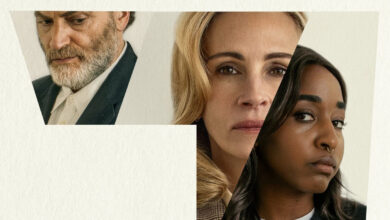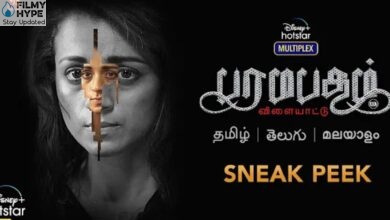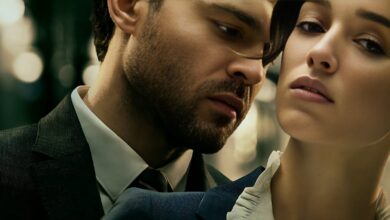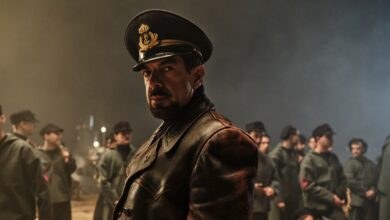Bird Movie Review: Perfect Mix Between Indie Film and Youth Fairy Tale | Cannes 2024
Cast: Barry Keoghan, Franz Rogowski, Nykiya Adams, Jason Buda
Director: Andrea Arnold
Where we Watched: At the Cannes Film Festival
Filmyhype.com Ratings: 4/5 (four stars)
Bird movie bears the signature of Andrea Arnold, an English director who has always shown herself fond of youth narratives, especially in urban contexts. This film is consistent with her production, a very balanced mix of hard and dirty genres but full of poetry and sensitivity, where human relationships are the real heart, not so much the narrative process itself. Imaginative but not excessive, surprising even with some excess of mannerisms, Bird is a profound reflection on loneliness, family, and modern solitude. The selection of films in competition at the Cannes Film Festival always offers many surprises: one of these is certainly Bird by Andrea Arnold, a moving but at the same time powerful coming-of-age story set in a run-down suburb of North Kent. The narrative’s protagonist is Bailey, a smart and independent twelve-year-old constantly struggling with a difficult social context and with all the challenges that a complex period like that of adolescence inevitably brings.
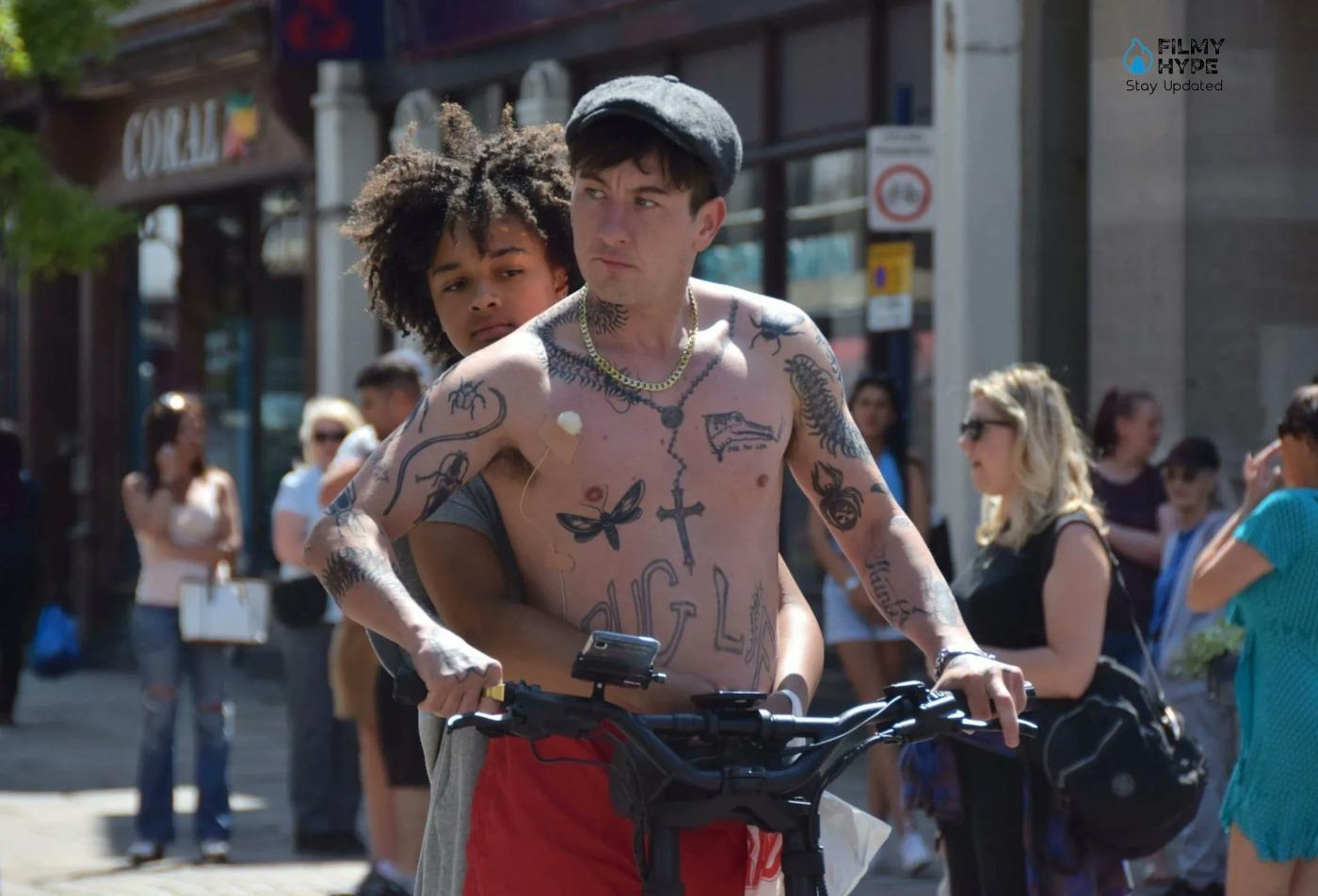
BBC Film)
Bird, a bizarre and kind-hearted stranger who will accompany the girl on a journey to discover herself and her strength, will come to her rescue. To lead us on this new journey from childhood to adolescence, Arnold then returns to that residential suburb which was already the scene of her first works: the aforementioned Fish Tank and her debut work Red Road (2006), but also with short films Dog (2001) and Wasp (2003, for which he won the Oscar). After his American parenthesis with American Honey, he finds in these places all the elements he needs to produce an instinctive cinema, which does not worry about showing the brutality of certain environments and the children he develops, who however prove capable of dreaming of freedom beyond the squalor that surrounds them. Taking flight, in other words, even if learning to do so requires the courage to launch yourself into the void.
Bird Movie Review: The Story Plot
Bird stars 12-year-old Bailey (Nykiya Adams), a 12-year-old whose life in the suburbs of North Kent is particularly tough. Her father Bug (Barry Keoghan) had her when she was still very young, but now he is about to get married to his new girlfriend Kayleigh (Frankie Box), also a single mother, which is normal in the degraded, extremely violent and perspectiveless environment to which they all they belong. For Bailey, the days are a constant struggle not only with a complicated age, with her changing body but also with the fear that her younger sisters and brother, who her father had from her mother in the past, are okay, that Skate (James Nelson Joyce), the mother’s new boyfriend, is not violent. An eventuality that would constitute an exception to what you know of her life up until then. In all this turmoil she has made of loneliness and degradation, her life will be changed by the meeting with the bizarre Bird (Franz Rogowski).
He turns out to be a very strange but harmless individual, who involves her in her search for her family, whom she lost contact with many years before. It will only be the beginning of a small revolution in Bailey’s life, who is looking for an answer, but above all a solution to a total absence of prospects, to a life that he does not understand just as he does not understand that irresponsible father/boy, the strange laws of his world outside of everything. At her side is Bird, who seems to have a solution for everything and no hostility towards what surrounds her. Bird arrives in competition at Cannes, a competition that is currently quite atypical and difficult to pin down, given the divisive opinions of the critics. This film will certainly be no exception, both for its very personal aesthetic nature and, of course, for its narrative structure, themes, and characters. Created based on a very dirty, urban photograph by Robbie Ryan, it has a direction that makes the viewer the invisible companion of this little girl and takes us into a story halfway between neorealism and fantasy.
Bird Movie Review and Analysis
Bird is halfway between a training film, a truth operation about a very specific and unfortunately expanding social context in the United Kingdom, and a metaphor in the form of a fairy tale, with strong references to Perrault, the Brothers Grimm, as well as British folklore in the broadest sense. classic and mythological, with nature becoming the interpreter of the protagonists’ state of mind, and animals as semantic totem. However, everything deliberately often remains at an embryonic level, quite nuanced, because this is and remains a suburban story. Bird is populated mainly by boys, who grew up very quickly, often part of gangs, they are the children of those parts of England who today, for better or worse, are suffering the same fate that they suffered forty years ago, during the era of the Lady of Iron when minorities and the poor were a burden. The central theme of Bird, however, is that of the family, with the usually brilliant Khoegna who draws a sort of little Maranza, a suburban boy with a lot of children already behind him, incapable of taking care of them, all caught up in his little world, in a live totally de-responsible and almost unconscious.
Yet the Irish actor is so good, he almost makes us admire this strange guy covered in random tattoos. Rogowski’s Bird (already seen in Freaks Out by Mainetti and Lubo by Diritti) is different from the norm in the most ancestral and absolute sense, in him there is the concept of fluidity and hybrid, both understood as a gender and as a relationship between man and nature, different overlapping realities. A sort of silent but not passive spirit, he becomes the companion of the protagonist, who is very masculine in his ways, in his language, even in his clothing, but forced to deal with the reality of his changing body, of time taking its course. Although not particularly creative from a narrative point of view, Bird fascinates with its almost semi-documentary nature, realistic in an all-encompassing way, which allows total immersion in the characters and their misadventures. Far from being consolatory, it is a significant fresco on an age often mythologized for no particular reason by the small and big screen, and it is also a finger pointed at today’s English society, still incredibly backward, macho, and violent.
Bird is a fascinating coming-of-age story that follows the journey of Bailey, a twelve-year-old searching not only for her place in the world, but also for a sense of belonging within herself; She is immersed in a family environment where she does not seem to find any kind of support and interest, and with a body that begins to face the destabilizing changes of puberty, Bailey will find herself struggling against a series of both external and internal challenges. However, her fate takes an unexpected turn when she crosses paths with Bird, a good-natured wandering soul played masterfully by Franz Rogowski. An encounter that will prove not only to be a casual event but, above all, a catalyst for change: through her interaction with Bird the girl begins a journey to discover herself and rediscover the value of emotional bonds. The man thus becomes a sort of mentor for Bailey, a guide who helps her navigate through the choppy waters of her youth until she transforms into an aware and confident woman.
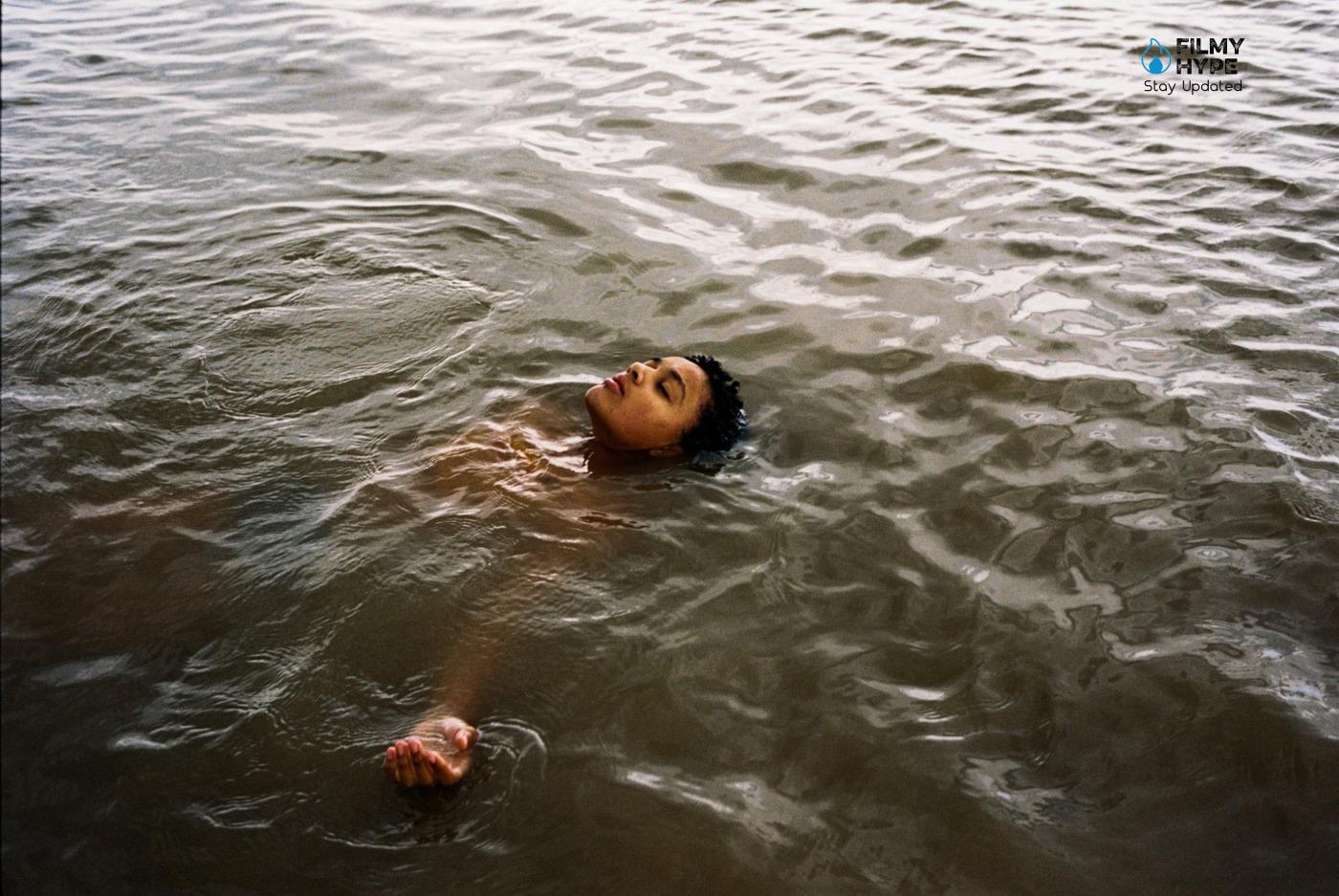
BBC Film)
In Bird, the celebration of family bonds emerges powerfully even as the audience is presented with deeply dysfunctional families. Bug, played masterfully by Barry Keoghan, is an imperfect father figure, a boy from the suburbs who, despite his young age, already has a lot of children behind him, whom he is unfit to take care of: he is too busy organizing his impending wedding and to find bizarre ways to make money – such as exploiting a toad with hallucinogenic slime – to pay attention to his offspring. However, Keoghan manages to make Bug an almost lovable character in his eccentricity and his apparent carelessness towards life. Furthermore, even though he neglects Bailey and her older brother most of the time, Bug manages to be present in crucial moments, proving that love can manifest itself in even the most unexpected ways. When he tells them, “I would have been better off without you, but I love you”, Bug expresses an unprecedented depth of feeling, acknowledging the difficulties of being a parent but still affirming a genuine feeling.
The theme of family is further explored through the character of Bailey, whose deep love for her younger sisters and brother is evident, but not only: despite a probable history of abandonment behind her, the girl expresses the desire to protect her mother from violent and misogynistic boyfriend, highlighting the importance of finding strength in family ties, even when circumstances seem completely adverse. Director Andrea Arnold transforms a suburban suburb characterized by poverty, marginalization, and juvenile delinquency into a stage where beauty can be discovered even in the most unexpected places. She manages to infuse an almost dreamlike aura into the degraded context of the English suburbs, offering the viewer evocative images that transform landscapes of decay into places that hide messages of hope, engraved in stairwells and on peeling walls. In these spaces that seem forgotten by the world, violence is a constant and oppressive presence, but it still fails to suffocate the beauty that hides beneath the surface.
Thus, Bird becomes an invitation to look beyond appearances, to discover poetry in the smallest details, even among the cracks of the most difficult lives. In the film, the magical element plays a subtle but significant role, characterized by a metaphorical nature that remains enigmatic and ambiguous until the end: we never understand whether the supernatural events (which we will not spoil for you) represented happen or are the result of the protagonist’s mind. This touch of magic, although present, is however rather superfluous, since the heart of the film remains firmly anchored in the reality of a difficult suburb and Bailey’s path of personal growth. Despite being permeated by a fairy-tale metaphor and references to British folklore, in fact – with nature itself reflecting the state of mind of the characters and the animals acting as semantic totems – the fantastic element remains deliberately nuanced, only sketched. But we are certain of one thing: as Bird promises her, Bailey will be fine.
Bailey therefore watches the Birds fly in the sky and envies them for their freedom, while she is forced to live in a house (or rather, an entire building) that is in disrepair, to say the least: graffiti on the walls, junk in every corner, dead flies at the window, unsafe doors, his bed which is nothing more than a mattress placed on the floor and a father distracted by his questionable affairs. Outside there, a neighborhood forgotten by God and by those who should take care of it, abandoned to dereliction, to degradation, and therefore without any concrete prospect of a future for the little ones but also for their parents, all of whom are little more than kids. To tell the story of the discomfort and precariousness of this life, Arnold follows Bailey very closely with a handheld camera, which on the one hand gives us all of his emotional instability, on the other hand, gives the images and the story they convey a contagious full of vitality.
It is surprising how the director demonstrates that she has not lost or diminished her enthusiasm for these stories and their protagonists in the slightest, bringing them back to the public with the same energy that a young and enthusiastic debut director might have. Through Bailey, Arnold therefore leads us to the discovery of a world and its rules, where we grow too quickly and above all alone. A world about which Arnold does not deceive us: it is not beautiful, not at all, but the sincerity with which it is presented to the public still manages to make it seem fascinating and much more sincere than in a more wealthy context. And just as happened in Fish Tank – of which Bird seems to be in every way a twin brother – the places naturally become something else beyond what appears to us in the first place, becoming a mirror of the soul of a protagonist who can no longer wait for take its first flight.
Bailey is ready to discover her own identity, to become a woman, and to become aware of her role in the world. Her transformation – naturally – takes place above all on a physical level and if initially it seems almost difficult to establish whether she is a girl or a boy (due to the clothes she wears, and the haircut), her feminine nature progressively blossoms, first through use of makeup and finally with the arrival of the first menstrual period. Stages of a journey that the young woman is largely forced to complete alone, with us as her witnesses and her only confidants. In addition to the spectators, his guardian angel however becomes Bird, a young man in search of his roots who continually needs to rise above things to understand where he is in the world. A character who does not need too many explanations or solid background, rather becoming the bearer of that desire to search for one’s origins, starting from which one can even better define one’s history and identity.
Bird is not only Bailey’s guardian angel but becomes her inspiration to push herself further than he ever dared to. Thus a coming of age of the best type takes shape, one that does not hide the difficulties of the existence of the protagonists, managing to capture the best and the worst of that very delicate moment of transition in the life of each of us which is the passage from childhood to adolescence. Arnold achieves this by staying true to these characters and their emotions, treating them all with the same dignity, from Bailey to the quirky Bird and even the exuberant Bug. For the latter two, in particular, the director relies on two very well-known actors who put themselves completely at the service of their characters, restoring all the humanity with which, for better or worse, they are endowed.
It thus becomes very easy to become passionate and be moved by their adventures and misadventures, being able to rediscover very easily – albeit with the necessary differences – thoughts and moods that may have been typical of each of us at that age. An age in which everything new is scary and can seem like the end of the world when it would be enough to simply have someone next to you who will whisper to you that there is no reason to worry, that everything will be fine. In doing so – and thanks also to an extraordinary choice of musical pieces – Bird confirms itself as one of the most exciting coming-of-age films seen recently, capable of remaining with the viewer well beyond its conclusion.
Bird Movie Review: The Last Words
Bird reflects on the concept of identity and sense of belonging, on the difficult transition from childhood to adulthood, and on the need to find beauty even in the cracks of the most adverse contexts. He does this through careful and sensitive direction and by exploiting the excellent performances of his lead actors, among whom we also find Barry Keoghan. Andrea Arnold returns to talk about young people amid important transitions and creates with Bird a new cinematic jewel that not only amazes the youth that the director demonstrates with her gaze but also for the sincerity with which the characters are told. The result is one of the most exciting coming of ages seen recently.



